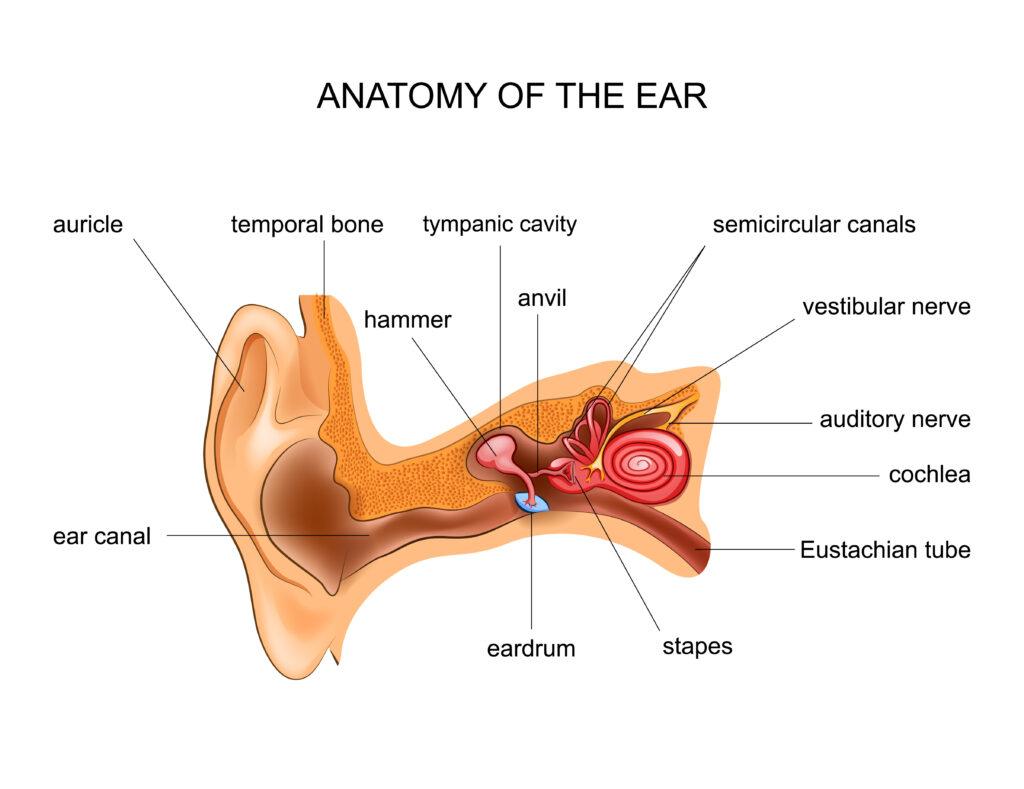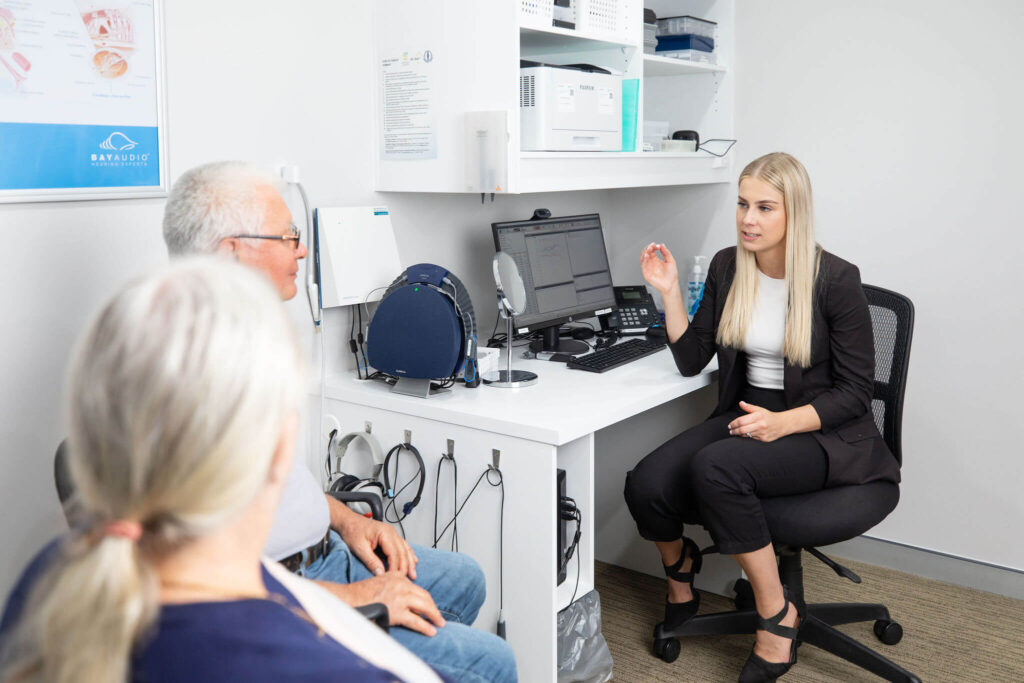
Retrocochlear Hearing Loss
There are four types of hearing loss; conductive hearing loss which stems from issues with the outer or middle ear, Sensorineural hearing loss which is the result of damage to the cochlear, mixed hearing loss which is a mix of both conductive and Sensorineural hearing loss, and Retrocochlear hearing loss which is when the auditory nerve itself is damaged. Retrocochlear hearing loss is a relatively rare form of hearing loss.
Retrocochlear hearing loss, what is it?
Retrocochlear hearing loss is hearing loss which occurs beyond the cochlear. This happens when the auditory nerve is damaged or interfered with. While sound may be processed correctly by your inner ear, with Retrocochlear hearing loss, the auditory nerve has difficulty transmitting the sound you hear to your brain. People who experience Retrocochlear hearing loss often have trouble paying attention to conversations or hearing well when there is a lot of background noise.

Symptoms of retrocochlear hearing loss
Usually unilateral (occurring in just one ear), Retrocochlear hearing loss often exhibits the following symptoms.
Unilateral tinnitus
This is a ringing, clicking or buzzing sound in just one ear, rather than both.
Unilateral hearing loss
Again, this is a type of hearing loss occurring in just one of your ears.
Dizziness
Issues with balance like vertigo and a feeling of “spinning” are common symptoms of Retrocochlear hearing loss.
Unilateral ear fullness
This symptom of Retrocochlear hearing loss is the feeling of fullness or excessive pressure on one side of your head in your inner ear, in one ear and not the other.
Facial paralysis
One side of your face may feel weak or could even “droop” down if you are experiencing Retrocochlear hearing loss.
Poor speech discrimination
This manifests itself in the feeling that people are “mumbling” around you and not enunciating their words or being clear in their speech.
Retrocochlear hearing loss causes
Retrocochlear hearing loss can be the result of a variety of things which have damaged the auditory nerve. These include:
Infections
Infections which can result in Retrocochlear hearing loss include viral and bacterial infections which permanently damage the auditory nerve.
Metabolic Disorders
Metabolic disorders can cause impairment of your body’s normal function and can result in issues such as stroke or type two diabetes. A metabolic disorder can result in retrocochlear hearing loss if it damages your auditory nerve.
Multiple sclerosis
Multiple sclerosis (MS) is a chronic disorder that causes your body to attack the covering (myelin sheath) of your nerves. This is known as a demyelinating disease. When the auditory nerve is affected by MS, it can result in Retrocochlear hearing loss.
Vascular disorders
A vascular disorder is any condition that affects your circulatory system. Ranging from diseases of your arteries, diseases of your veins and lymph vessels and also including blood disorders that affect your circulation, vascular disorders can cause damage to the auditory nerve resulting in hearing loss.
Head trauma
If you experience head trauma, particularly in your temporal lobe, this will impede your brain’s ability to process sounds, resulting in Retrocochlear hearing loss.
Tumors of the acoustic nerve
A tumor, like the benign acoustic neuroma, can impact the capacity of your auditory nerve to conduct sound to your brain.
Auditory neuropathy
Causing the disruption of nerve impulses travelling between your inner ear and your brain, the cause of auditory neuropathy is unknown and there is no cure.
Ototoxic medications
Ototoxic medications are medications which are toxic to your ears, these include Non-Steroidal Anti-Inflammatory Drugs like aspirin and ibuprofen, some antibiotics including aminoglycosides, some cancer medications, water pills, diuretics and quinine based medications.
Retrocochlear hearing loss treatments
Treatments for Retrocochlear depend on the cause. It is important to seek medical evaluation by either visiting a doctor or audiologist to receive an official diagnosis for your Retrocochlear hearing loss. Common treatments for this type of hearing loss include:
- Surgery to remove an acoustic neuroma or tumors
- Hearing testing followed by the administration of hearing aids can assist with retrocochlear hearing loss
- Cochlear implants along with speech therapy can help with the management of this type of hearing loss in children

Are You Experiencing Signs of Hearing Loss?
Make a booking enquiry today to discuss it with a Bay Audio clinician
